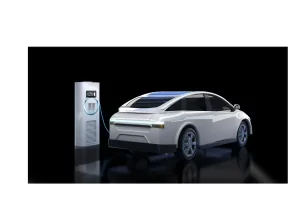Electric vehicles (EVs) have gained significant traction over the past decade, transforming the automotive landscape. As more consumers opt for EVs due to their environmental benefits and lower operating costs, understanding the maintenance needs of these vehicles becomes crucial. While many aspects of EV maintenance can be tackled by owners themselves, others may require professional expertise. This section will delve deeply into the unique maintenance considerations for electric vehicles, comparing DIY approaches to professional maintenance.
Understanding Electric Vehicles
What is an Electric Vehicle?
An electric vehicle is powered entirely or partially by electricity, utilizing electric motors instead of internal combustion engines. There are three primary types of electric vehicles:
- Battery Electric Vehicles (BEVs): Fully powered by electric batteries, with no gasoline engine. Examples include the Tesla Model 3 and the Nissan Leaf.
- Plug-in Hybrid Electric Vehicles (PHEVs): Combine an electric motor with a conventional gasoline engine, allowing for both electric and fuel-based driving. Examples include the Toyota Prius Prime and the Chevrolet Volt.
- Hybrid Electric Vehicles (HEVs): Rely on a combination of an internal combustion engine and electric power but do not require external charging. Examples include the Honda Insight and Toyota Camry Hybrid.
Benefits of Electric Vehicles
The rise of electric vehicles is driven by several compelling benefits:
- Environmental Impact: EVs produce zero tailpipe emissions, significantly reducing air pollution and greenhouse gas emissions.
- Cost Savings: Lower fuel costs and reduced maintenance needs translate to savings over time.
- Performance: Electric motors provide instant torque, offering a smooth and responsive driving experience.
- Government Incentives: Many regions offer tax credits, rebates, and incentives for purchasing EVs, further reducing the initial cost.
DIY Maintenance for Electric Vehicles
Common DIY Maintenance Tasks
While EVs have fewer moving parts than traditional vehicles, they still require regular maintenance to ensure optimal performance. Here are some common DIY maintenance tasks for electric vehicle owners:
Tire Maintenance
- Tire Rotation: Just like conventional cars, EVs require regular tire rotation to ensure even wear. This can be done every 5,000 to 7,500 miles, depending on the manufacturer’s recommendations.
- Tire Pressure Checks: EVs can be sensitive to tire pressure. Owners should regularly check tire pressure and maintain it at the manufacturer’s recommended levels. Under-inflated tires can reduce efficiency and range.
Brake Maintenance
- Brake Fluid Checks: EVs often use regenerative braking, which reduces wear on brake pads. However, it’s essential to check brake fluid levels regularly and replace it according to the manufacturer’s recommendations.
- Brake Pad Inspection: While brake pads may last longer in EVs, they should still be inspected periodically for wear, especially if you notice a decrease in braking performance.
Cabin Air Filter Replacement
- Air Filter Checks: Just like traditional vehicles, EVs have cabin air filters that need replacing. Most manufacturers recommend replacing the filter every 15,000 to 30,000 miles, depending on driving conditions.
Battery Maintenance
While the high-voltage battery of an EV is generally not a DIY task, owners can take steps to maintain battery health:
- Monitoring Charge Levels: Owners should avoid letting the battery level drop too low frequently. Keeping the battery charged between 20% and 80% can help prolong its lifespan.
- Temperature Management: Extreme temperatures can impact battery performance. Parking in shaded areas during summer and using heated garages in winter can help maintain optimal battery temperatures.
Pros of DIY Maintenance for EVs
Cost-Effectiveness
Performing maintenance tasks like tire rotations and air filter replacements can save you money on service fees. EV maintenance can be less frequent than that of traditional vehicles, and DIY can further reduce costs.
Empowerment and Knowledge
Engaging in DIY maintenance allows EV owners to become more knowledgeable about their vehicles. This understanding can foster a deeper connection to the car and enhance confidence in addressing minor issues.
Flexibility
DIY maintenance provides the flexibility to perform tasks on your own schedule. Rather than waiting for a service appointment, you can take care of maintenance when it’s convenient for you.
Cons of DIY Maintenance for EVs
Limited Scope
While certain maintenance tasks are manageable, others—especially those involving the high-voltage battery or electrical systems—should be left to professionals. Attempting to perform complex repairs without proper training can be hazardous.
Time Investment
Even simple tasks can require a time commitment. For busy individuals, dedicating time to maintenance can feel burdensome, leading to potential neglect.
Risk of Errors
DIY maintenance carries the risk of making mistakes, which can lead to further issues down the line. For example, improper tire rotation could lead to uneven wear and reduced performance.
Professional Maintenance for Electric Vehicles
Importance of Professional Maintenance
While many maintenance tasks can be performed by owners, certain aspects of EV maintenance necessitate professional expertise. Here are some key areas where professional service is essential:
Battery Health and Management
The high-voltage battery system is the heart of an electric vehicle. While owners can monitor battery levels, professional technicians are needed for:
- Battery Diagnostics: Identifying and addressing battery health issues that may not be apparent to the owner.
- Software Updates: EVs often rely on software for various functions, including battery management. Professionals can ensure that the latest updates are applied.
Electrical System Checks
Electric vehicles feature complex electrical systems. Regular inspections by professionals can help detect potential issues before they escalate. Tasks include:
- Wiring Inspections: Checking for damaged or frayed wiring that could lead to failures or safety concerns.
- Charging System Maintenance: Ensuring that the charging components function correctly to avoid charging issues.
Specialized Repairs
Some repairs, such as those involving the electric motor or inverter, require specialized training and tools. Professionals can handle:
- Motor Replacement: If the electric motor fails, replacement should be performed by certified technicians.
- Inverter Repair: The inverter, which converts direct current (DC) from the battery into alternating current (AC) for the motor, may require professional attention if issues arise.
Pros of Professional Maintenance for EVs
Expertise and Training
Professionals have the training and experience necessary to diagnose and repair EV-specific issues. Their expertise ensures that repairs are performed correctly and safely.
Warranty Protection
Many electric vehicles come with warranties that cover certain repairs and maintenance. Using professional services helps protect your warranty, as DIY repairs could void coverage.
Peace of Mind
Knowing that trained technicians are handling critical components provides peace of mind for EV owners. This reassurance can alleviate concerns about safety and reliability.
Cons of Professional Maintenance for EVs
Cost
Professional maintenance can be more expensive than DIY, particularly for specialized services. Owners may feel hesitant about incurring these costs, especially if they are accustomed to handling routine tasks themselves.
Scheduling Challenges
Getting an appointment with a professional service can take time, particularly if you’re dealing with a high-demand technician or service center. This waiting period can be frustrating, especially if you need immediate attention.
Variable Quality of Service
Not all service providers offer the same quality of care. Researching and finding a reputable technician is essential to ensure you receive the best service possible. Poor service can lead to additional problems and increased costs.
Factors to Consider When Deciding Between DIY and Professional Maintenance for EVs
Nature of the Maintenance Task
Complexity of the Task
Understanding the complexity of the task at hand is crucial. While tire rotations and air filter changes are manageable, tasks like battery diagnostics and electrical repairs require professional expertise.
Safety Concerns
Safety is paramount, particularly when dealing with high-voltage systems. Tasks that pose safety risks, such as working on the battery, should always be left to trained professionals.
Budget Considerations
Initial Costs vs. Long-Term Savings
While DIY maintenance can save money upfront, consider the potential costs associated with mistakes or improper maintenance. Investing in professional care may yield long-term savings by preventing costly repairs.
Evaluating Potential Costs
Create a budget for both DIY and professional maintenance options. This analysis will help you determine which route aligns better with your financial situation.
Personal Skills and Knowledge
Self-Assessment of Skills
Consider your own skills and comfort level with DIY tasks. If you have a background in automotive work or enjoy learning, you may be more inclined to tackle maintenance on your own.
Availability of Resources and Guidance
Access to reliable resources—such as manuals, online guides, and forums—can significantly impact your ability to perform DIY maintenance successfully.
Time and Convenience
Evaluation of Time Available for DIY
Assess how much time you realistically have to dedicate to maintenance tasks. If your schedule is already packed, it may be more convenient to seek professional help.
Urgency of the Task
If a maintenance task is urgent, hiring a professional can expedite the process and prevent further complications. In contrast, DIY may require a more extended time commitment.
Conclusion
Navigating the maintenance of electric vehicles involves a careful consideration of DIY versus professional options. While many routine tasks can be managed by owners, there are critical components that demand professional expertise. By understanding the unique needs of EVs and weighing the pros and cons of each approach, you can make informed decisions that ensure the longevity and reliability of your vehicle.
As electric vehicles continue to evolve, so too will the best practices for maintaining them. Whether you choose to tackle tasks yourself or enlist professional help, staying informed about your vehicle’s needs will empower you to keep your EV performing at its best.
Call to Action
We invite you to share your experiences with electric vehicle maintenance! Have you tackled any DIY projects successfully, or do you prefer the peace of mind that comes with professional service? Join the conversation in the comments below and subscribe for more insights and tips on electric vehicle maintenance and care.




